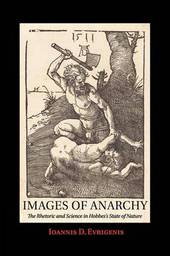
|
Images of Anarchy: The Rhetoric and Science in Hobbes's State of Nature
Paperback / softback
Main Details
Description
Hobbes's concept of the natural condition of mankind became an inescapable point of reference for subsequent political thought, shaping the theories of emulators and critics alike, and has had a profound impact on our understanding of human nature, anarchy, and international relations. Yet, despite Hobbes's insistence on precision, the state of nature is an elusive concept. Has it ever existed and, if so, for whom? Hobbes offered several answers to these questions, which taken together reveal a consistent strategy aimed at providing his readers with a possible, probable, and memorable account of the consequences of disobedience. This book examines the development of this powerful image throughout Hobbes's works, and traces its origins in his sources of inspiration. The resulting trajectory of the state of nature illuminates the ways in which Hobbes employed a rhetoric of science and a science of rhetoric in his relentless pursuit of peace.
Author Biography
Ioannis D. Evrigenis is Associate Professor Political Science, with a secondary appointment in Classics, at Tufts University, Massachusetts, where he directs the Bodin Project. He is the author of Fear of Enemies and Collective Action, which received the Delba Winthrop Award for Excellence in Political Science, and coeditor of Herder's Another Philosophy of History and Selected Political Writings.
Reviews'[Evrigenis'] command of the relevant texts and of their scholarly interpretations is unsurpassed, and he engages with both in subtle ways ... [His] book, complemented by fourteen full-page illustrations, is the best sustained treatment of Hobbes' concept of the state of nature and will be essential reading for Hobbes scholars, who will find his reasoning and conclusions challenging and thought-provoking.' A. P. Martinich, The American Historical Review '[Evrigenis'] book is organised in four parts, and every part is a source of insightful observations and comments that can stimulate the imagination of the historian, the philosopher, the political theorist, the expert of English literature, the established academic as well as the young undergraduate. The analysis is inventive, authoritative, and inspiring.' Gabriella Slomp, The Seventeenth Century 'Written with exemplary historical competence, stylistic finesse, and interpretative elegance, the book will appeal to a wide academic audience - political scientists, political philosophers, sociologists, and historians.' Severin V. Kitanov, Sixteenth Century Journal '... bold, illuminating, and [a] scrupulously documented book ... this is a serious, erudite, and comprehensive book that tackles the puzzles of Hobbes's political theory with sensitivity and originality. It will repay careful study not only by Hobbes scholars but all those interested in rhetoric, early modern political thought, and the reception of antiquity in the seventeenth century.' Richard Boyd, The Review of Politics
|